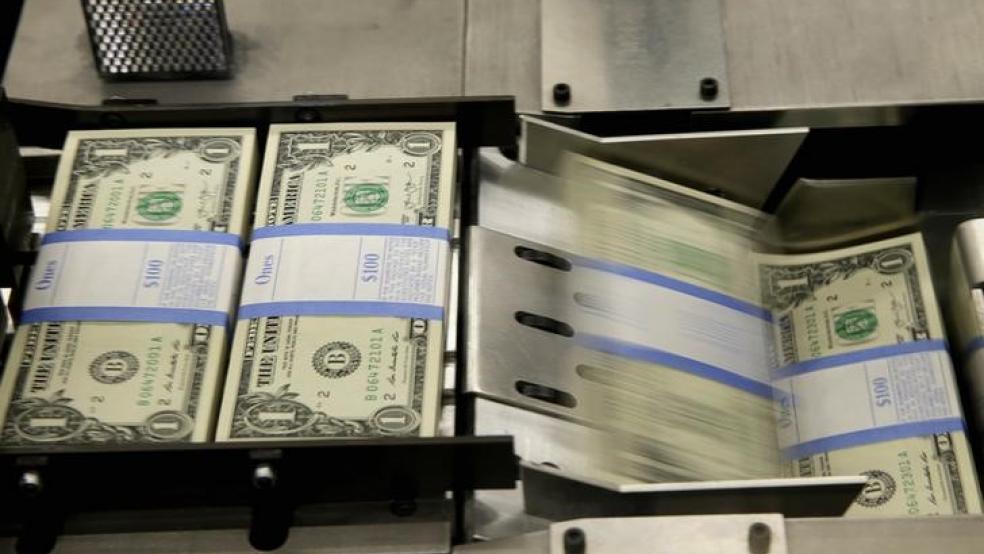NEW YORK (Reuters) - The dollar hit three-week lows on Tuesday and commodity-linked currencies declined as disappointing Chinese import data stoked worries about the global economy and raised bets the Federal Reserve would not raise U.S. interest rates until 2016.
The pound retreated from a three-week high against the dollar and touched an eight-month low against the euro after domestic inflation turned negative again.The greenback was stuck with modest losses against most major currencies."The dollar has been pinned to the low of its trading ranges on moderating expectations of a Fed rate hike this year. October is essentially priced out and December is looking less likely given recent comments from a number of Fed officials," said Omer Esiner, chief market analyst at Commonwealth Foreign Exchange in Washington.On Tuesday, Fed Governor Daniel Tarullo told CNBC television he doesn't expect the economy is prepared for a rate hike this year, while St. Louis Fed President James Bullard said an October rate rise is unlikely.Their remarks came after data showed Chinese imports fell 20 percent in the year through September, which underscored falling domestic demand that raises pressure on Beijing to introduce more stimulus. That knocked the Australian dollar, a proxy for investments to China, off a two-month high to $0.7271. The New Zealand dollar was down 0.6 percent at $0.6675.Anxiety about the world's second-biggest economy had pushed the dollar to three-week lows against a basket of currencies as expectations faded on a U.S. rate increase later this year.The dollar index <.dxy>, which tracks the U.S. currency against a basket of six major currencies, hit a three-week low of 94.539 before retracing much of the decline to be fractionally lower at 94.759.The dollar was down 0.15 percent at 119.820 yen, while the euro rose to $1.14110, a three-week peak, before easing to $1.1381, according to EBS data. The euro retreated from its earlier peak after the ZEW survey of German economic sentiment fell short of forecasts due to the Volkswagen scandal and weakness in emerging markets. The euro, however, gained against the British pound after a surprise September fall in UK consumer prices overshadowed the confirmation of a 69 billion pound ($100 billion) merger of beer producers SABMillerWeak China data weigh on dollar, commodity currencies

GARY CAMERON



